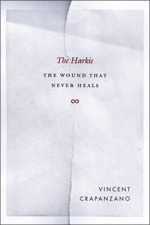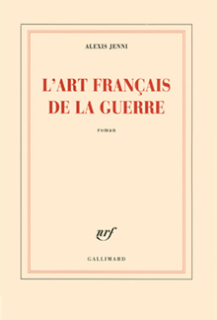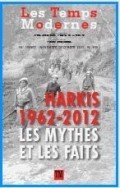
War is a very dirty business, and that is why it's best to do everything possible to avoid it. But when it starts, there is a code of honor, going back centuries, that needs to be respected. One part of the code is that you protect the people who have helped you, and whom you have put in harm's way. When the United States invaded Iraq, under two pretexts: the fallacious one of rooting out weapons of mass destruction, and the laudable one of toppling Saddam Hussein, it set in motion a whole train of events that concerned not only its own soldiers, but all the people it enrolled in its efforts, most notably people such as Iraqi interpreters.
An article by Kirk W. Johnson, titled
In Iraq, Abandoning our Friends, in last Saturday's New York Times, shows how the United States is going to sacrifice many of the Iraqi allies who helped its army. Instead of resettling these people swiftly to the United States, it is putting them through an 18-month "feed the bureaucratic machine" process, which will inevitably result in the excruciating deaths of many of the people the United States Army leaves blithely behind it in Iraq.
Here is an excerpt from the article:
...the Iraqis who loyally served us are under threat. The extremist Shiite leader Moktada al-Sadr has declared the Iraqis who helped America "outcasts." When Britain pulled out of Iraq a few years ago, there was a public execution of 17 such outcasts — their bodies dumped in the streets of Basra as a warning. Just a few weeks ago, an Iraqi interpreter for the United States Army got a knock on his door; an Iraqi policeman told him threateningly that he would soon be beheaded. Another employee, at the American base in Ramadi, is in hiding after receiving a death threat from Mr. Sadr's militia.
Of course, many Iraqis will consider people who worked with the United States as traitors or collaborators, but what can seem true one year can seem very foolish 40 or 50 years later. Kirk W. Johnson's article reminded me of the tragic story of the Harkis, the auxiliaries who helped the French Army in the Algerian "external operation", as the Algerian war is euphemistically known in France.
One of the most shameful acts, at the end of the Algerian war, was when the French troops who were being pulled out of Algeria were ordered to trick their
Harki fellow fighters into handing over their weapons. Trucks of French troops then drove away, leaving their disarmed former comrades to the vengeance of the FLN victors. Luckily, some French officers and soldiers disobeyed orders, to maintain their honor, and managed to get about 70,000, out of nearly 400,000 Harkis, to France, by every "illegal" means they could think of. The grandchildren of those Harkis, who are known as 'French Muslims' in France, where other immigrants from Algeria are known as "North Africans" still do not have the right to visit their ancestral homes in Algeria.

The deaths experienced by the great majority of the Harkis who had fought alongside the French, and been abandoned by them in Algeria, were horrific. In some cases they were dragged from village to village to be publicly tortured for months on end. Here is an excerpt from 2011 Goncourt winner Alexis Jenni's novel, L'art français de la guerre (The French Art of War), in which he describes what the French soldiers could hear as their boats pulled away from the port of Algiers:
"Algiers was fading into the distance, but they could still hear the screams of the Harkis as their throats were cut. That is what they said to themselves, in tactful and courteous language, 'The Harkis were having their throats cut'. But they knew well what was happening, they had lived for long enough in this country that ran with blood. They knew well that that the screams rising from the crowd, as it dipped up and down along the sea front, were coming from Harkis, being emasculated and burned alive, who could see, through the mist of their blood-soaked tears, their tears and their blood, the boats pulling away."
 Claude Lanzmann
Claude Lanzmann, director of the film SHOAH, who was a supporter of Algerian independence, referred contemptuously to the Harkis as "Dogs" in 1961. But times change. Now, fifty years later, as director of that great French magazine, and institution,
Les Temps Modernes, Lanzmann has dedicated the latest edition of the review, dated November-December 2011, exclusively to the subject of the Harkis. It is titled,
The Harkis 1962-2012: Myths and Facts. His preface, which refers to the Harkis themselves and their descendants, reads:
"It is intolerable that this community should forever be marked by the stigma of shame and that its tragic history should remain buried, and unknown to most French people."
The Harkis ranged from out and out collaborators, who participated in French torture of their countrymen, to simple peasants who had formed self-defense units in Algeria to protect their villages from attack by the different Algerian factions waging war against the French, and who lived off the population. Some Harkis colluded with the Parisian police force, and its war criminal Head, Maurice Papon, in the massacre of more than 400 innocent, unarmed Algerians. This has come to be known as
the October 1961 massacre.
But the great majority of Harkis were people who never participated in activities against other Algerians, who just happened to choose the wrong side, or who believed sincerely that Algeria would be better off it remained part of France. The ones who managed to make it to France, after they were betrayed by the highest echelons of the French army, were parked in camps, under military guard, for many long years. The latest edition of Les Temps Modernes presents a much more nuanced view of the Harkis than the one that supporters of Algerian independence held back in 1960.
For many years I lamented the fact that there was not a good account in English of the fate of the Harkis, both those betrayed by the French army, who met their deaths in Algeria, and those who managed to make it to France, and their descendants, whoever since have been treated as sixth-class citizens. However, this omission has been repaired by the recent publication of Vincent Crapanzano's
The Harkis: The Wound that Never Heals. Here is the Amazon book description of Crapanzano's book:
"In this haunting chronicle of betrayal and abandonment, ostracism and exile, racism and humiliation, Vincent Crapanzano examines the story of the Harkis, the quarter of a million Algerian auxiliary troops who fought for the French in Algeria's war of independence. After tens of thousands of Harkis were massacred by other Algerians at the end of the war, the survivors fled to France where they were placed in camps, some for as long as sixteen years. Condemned as traitors by other Algerians and scorned by the French, the Harkis became a population apart, and their children still suffer from their parents' wounds. Many have become activists, lobbying for recognition of their parents' sacrifices, compensation, and an apology."
More than just a retelling of the Harkis' grim past and troubling present, The Harkis is a resonant reflection on how children bear responsibility for the choices their parents make, how personal identity is shaped by the impersonal forces of history, and how violence insinuates itself into every facet of human life."
I will finish this blog post by adding my voice to Kirk W. Johnson's brave campaign. His New York Times article was couched in that same "tactful and courteous language" described in the above excerpt from Alexis Jenni's novel, but let no person involved in the U.S. Government's handling of its Iraqi friends doubt for even one instant that--if America does not honor its promises--innocent blood and tears will flow, and that individual roles in the betrayal, although they may be tactfully forgotten in the near future, will undoubtedly be analysed in detail 5,10, 20, 30 and 50 years from now.
French readers can get an idea of Vincent Crapanzano's work by reading this article:
De la colère à l'indignation : le cas des harkis









 newest »
newest »
 newest »
newest »
 THanks so much for this insightful, erudite blog which reveals some of the true consequences of war. I'd not know much of Algiers. greg
THanks so much for this insightful, erudite blog which reveals some of the true consequences of war. I'd not know much of Algiers. greg
 Greg,
Greg, Have you seen a film Caché? Is the Algerian man and his son part of this? I don't know a lot about this exclusion
Have you seen a film Caché? Is the Algerian man and his son part of this? I don't know a lot about this exclusion
 G.S.,
G.S.,













